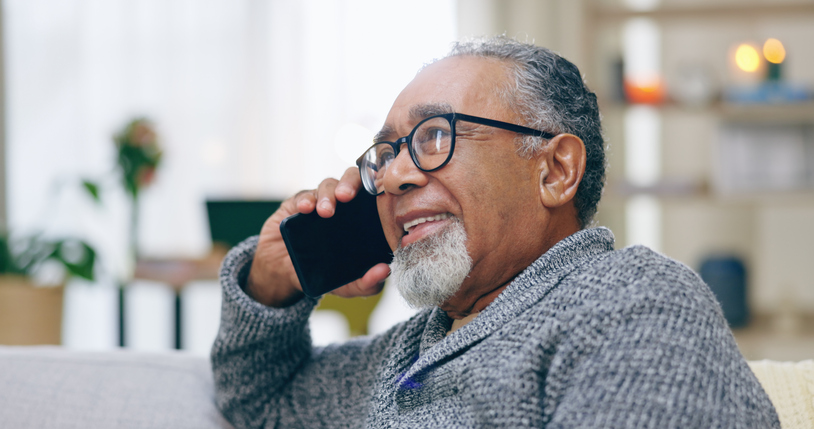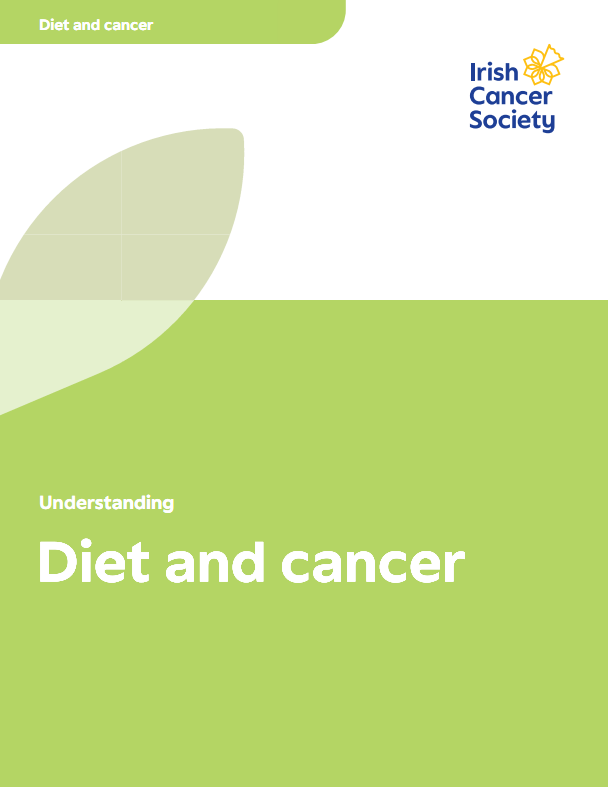Eating problems and weight loss
Eating-related difficulties include weight loss, sore mouth, dry mouth, taste changes and swallowing difficulties.
About eating difficulties
Many things can affect your appetite when you have cancer. For example, feeling sick (nausea), food tasting different, swallowing difficulties or having a sore/dry mouth.
Fatigue, anxiety and depression can also affect your appetite.
It’s important to try and manage eating difficulties so you can eat as well as possible. Eating well can help you to:
- Feel better
- Keep up your energy
- Cope better with treatment
- Recover faster
What should I do if I have symptoms?
If you have any problems that are affecting your desire or ability to eat or drink, talk to your medical team as soon as possible. They can give you advice on how to solve the problem and refer you to a dietitian or speech and language therapist, if necessary.
Weight loss
Weight loss can happen because of the cancer itself or because of eating difficulties caused by treatment.
If your weight loss is caused by eating difficulties such as poor appetite, taste changes, a sore mouth or feeling sick, ask your medical team for advice.
If you’re not eating enough or you’re losing weight, the hospital dietitian can advise you on ways to get more nutrition. You might be given supplements or a special diet - for example, a 'build-up diet' that is high in energy and protein.
Sometimes people with advanced cancer have severe weight loss called cachexia. Read more on cachexia.
Loss of appetite
If you have no appetite, your doctor may prescribe steroids, which can stimulate your appetite. We also have tips below on eating when your appetite is poor.
- Make the most of your appetite when it’s good. Eat when and what you want.
- Take small meals and snacks 4/5 times a day, about every 2-3 hours.
- Take snacks high in calories and protein.
- Use a smaller plate for your meals. Large portions can be offputting if your appetite is small.
- Eat slowly and chew your food well.
- Choose drinks that give some nutrition, such as milk, juices and soup.
- Try build-up drinks, which have a balanced mix of nutrients for when it’s hard for you to eat solid food. Talk to your dietitian about suitable ones for you. Your doctor can also give you a prescription for these drinks.
- Take only small sips while eating, as drinking might make you full.
- Encourage your family to eat together and make mealtimes relaxing and enjoyable.
- Take regular exercise, if you can, as it may help your appetite. Fresh air can help too.
- Talk to your doctor about medications to help other problems, like constipation, nausea, pain or other side-effects of treatment, if they affect your appetite.
- If you’re feeling nauseous tell your medical team so that they can give you anti-sickness medicine. If this doesn’t work, let them know. We have more advice on coping with nausea.
Difficulty swallowing
If you have difficulty swallowing or you find fluids are going down the wrong way, tell your medical team as soon as possible. You may need to see a speech and language therapist who can assess your swallow and recommend safe foods and fluids for you to eat and drink. Sometimes, people may need to use a thickener which they can add to their fluids to make it safer to swallow.
You can also have treatment for swallowing difficulties such as having a small operation to put in a stent to hold your food pipe open.
Tips to help with swallowing difficulties:
- Ask your dietitian for advice about how to make eating easier and if you need to take supplements or eat special foods, such as liquidised or pureed foods.
- Eat foods that you can swallow comfortably.
- Put small amounts of food in your mouth and chew well before swallowing.
- Finely chop, mince, mash or liquidise your food.
- Have sips of liquid between mouthfuls to help you to swallow.
- Eat your favourite foods but soften them with sauces and gravies, where possible.
- Try eating soft, liquid foods like soups, milkshakes, custards, natural yogurt. But vary them so you don’t get bored. Make sure soups have potato, lentils, vegan or vegetarian meat alternatives, tender or minced meat or fish in them for extra nourishment.
- Eat small, frequent meals.
- Sit up for all your meals if possible. Try to remain seated upright for 20–30 minutes after eating.
- Take build-up drinks, which are high in calories and protein. Your dietitian can advise you about these and your doctor can prescribe them.
- Drink at least 6 to 8 cups of fluid each day. All fluids count. For example, water, milk, juice, tea and coffee.
Other side-effects that affect your eating
Talk to your doctor if you’re feeling sick or getting sick. There are medicines to help. Take them as directed.
For tips on coping with nausea and vomiting at home see our page sickness (nausea and vomiting).
Speak to your medical team if you have any concerns about your taste. For many people, normal taste comes back in the months after treatment has ended. Some people will experience some longer term taste changes. Below are some tips that might help.
- Eat foods that appeal to your taste buds and smell good.
- Keep your mouth clean by rinsing and brushing – it may improve the taste of foods.
- Eat food cold or at room temperature, if smells bother you.
- Hold off eating foods that no longer appeal to you. Try them again some days or weeks later as you might enjoy them again.
- Flavour foods with onion, garlic, citrus or herbs like mint and basil, if you find food tasteless.
- Marinate meat, chicken or fish to help the flavour.
- Rinse your mouth with tea, saltwater or baking soda to help clear your taste buds before eating.
- Drink plenty of fluids.
- If liquids leave an unpleasant taste in your mouth, try drinking decaffeinated tea or coffee, or different favours of fruit squash drinks.
- If you have a metallic taste in your mouth, limit canned foods and try using plastic or wooden cutlery.
- Try chewing fresh or tinned pineapple before meals to get rid of bad tastes.
- Ask your doctor about mouthwashes, gels and medications to help with your sore mouth.
- Try rinsing your mouth with a homemade mouthwash made with 1 teaspoon of baking soda (sodium bicarbonate) and 1 teaspoon of salt to 1 pint / half a litre of warm water.
- Ask your doctor and nurse for painkillers if your mouth is painful. They may prescribe some antiseptic or local anaesthetic gels or lozenges.
- Visit your dentist regularly. He or she can give you advice about caring for your mouth and special mouthwashes.
- Take sips of fluids like water or milk often. Drink through a straw if your mouth is painful.
- Eat soft, moist food like omelettes, scrambled eggs, mashed potatoes, cream soups, natural yogurt, milkshakes, stews, puddings.
- Moisten your food with sauces or gravies.
- Purée or liquidise foods in a blender to make them easier to swallow. For example, try soups or smoothies.
- Take cold foods and drinks like milkshakes and smoothies to soothe your mouth.
- Take care with the following as they can make a sore mouth or throat worse:
- Pickled, salty or spicy foods
- Rough food, like crispy bread, dry toast or raw vegetables
- Alcohol and tobacco
- Citrus juices, like orange, lemon, lime, grapefruit or pineapple
- Mouthwashes that contain alcohol, or acidic ones
- Take sips of fluids like water often. Keep a bottle of water with you when you’re out. Sucking ice cubes or ice pops may help too.
- Moisten your food with sauces or gravy.
- Rinse your mouth regularly, especially before and after meals.
- Take care with foods like sandwiches, chocolate, pastry and freshly baked bread as they may stick to the roof of your mouth.
- Use special mouthwashes, gels and moisturisers often. For example, products that contain saliva enzymes. Your doctor or pharmacist can advise you about products to try.
- If you have thick saliva, rinse your mouth often with a baking soda mouthwash. Add 1 teaspoon of baking soda (sodium bicarbonate) to 1 pint / half a litre of warm water.
- Brush your teeth after every meal or snack. Use a soft toothbrush. Put it into a container of warm water to soften the bristles.
- Stimulate the flow of saliva with sugarless gum, boiled sweets or pastilles.
- Keep your lips moist with a lip balm.
- Talk to your doctor or pharmacist about antacid medications.
- Try to eat small frequent meals instead of large ones.
- Herbal teas like mint or liquorice may help.
- Avoid fizzy drinks, alcohol, spicy foods, pickles and citrus fruits.
- If indigestion is worse at night, avoid eating or drinking for a few hours before bedtime.
- Sit upright for 20-30 minutes after eating.
- Eat smaller meals 3 times a day and try adding 2-3 small snacks. Use high-calorie, high-protein meal ideas if you are eating less during the day or if you have lost weight.
- As you begin to feel less full, gradually increase the amounts of food and the time between meals.
- Avoid foods high in fibre to prevent you feeling full very quickly. For example, large portions of fruit and vegetables, wholegrain rice and pasta and wholemeal bread.
- Don’t drink large amounts of liquids before or during meals.
- Constipation can cause bloating, speak to your medical team for ways to manage constipation.
- Avoid gassy foods like beans, Brussels sprouts, cabbage, onions, garlic.
- Avoid fizzy drinks and beer.
- Eat and drink slowly and chew your food well.
- Don’t skip meals.
- Add fibre to your diet slowly. For example, small amounts of vegetables, fresh and dried fruits, and wholegrains. Fibre may make bloating worse for some people.
- Avoid chewing gum and sucking on hard sweets.
- Don’t smoke.
- Talk to your doctor and nurse to see if your medication is causing the bloating.
- Ask your doctor or nurse if any over-the-counter preparations can help.
- Exercise regularly if you can. Try to get at least 30 minutes of exercise each day.
- Eat and drink slowly. Small mouthfuls and chewing well can help.
- Certain food and drink can cause wind or cramps. For example, beer, beans, cabbage, spicy foods and sugar-free gum and sweets made with sorbitol.
- Let fizzy drinks go flat before drinking them.
- Herbal teas like mint or liquorice may help.
- Gentle exercise like walking can ease cramps.



Talk to a Cancer Nurse

Support Line
Our Daffodil Centres


